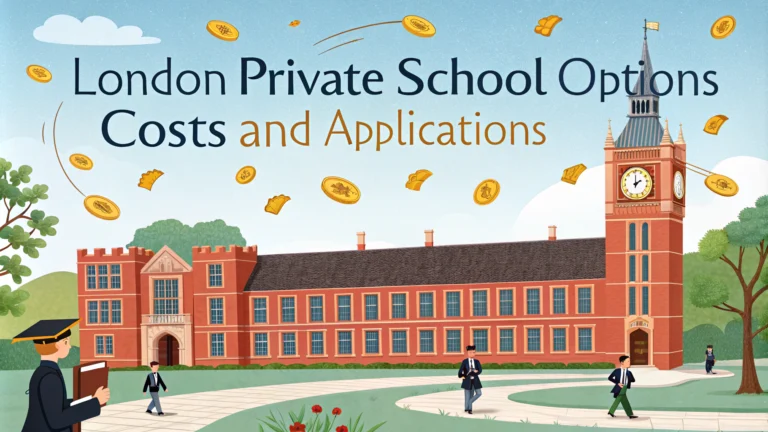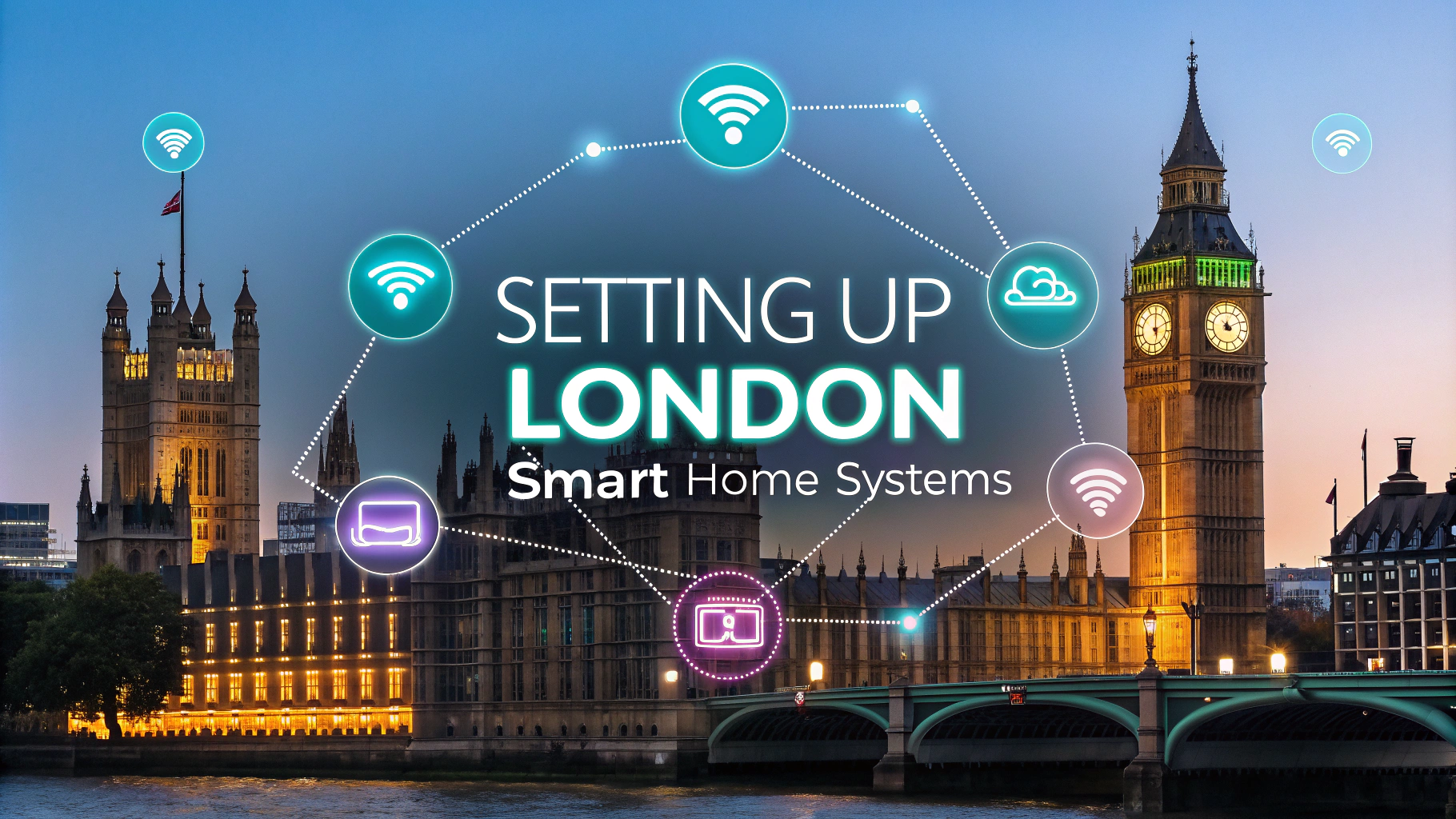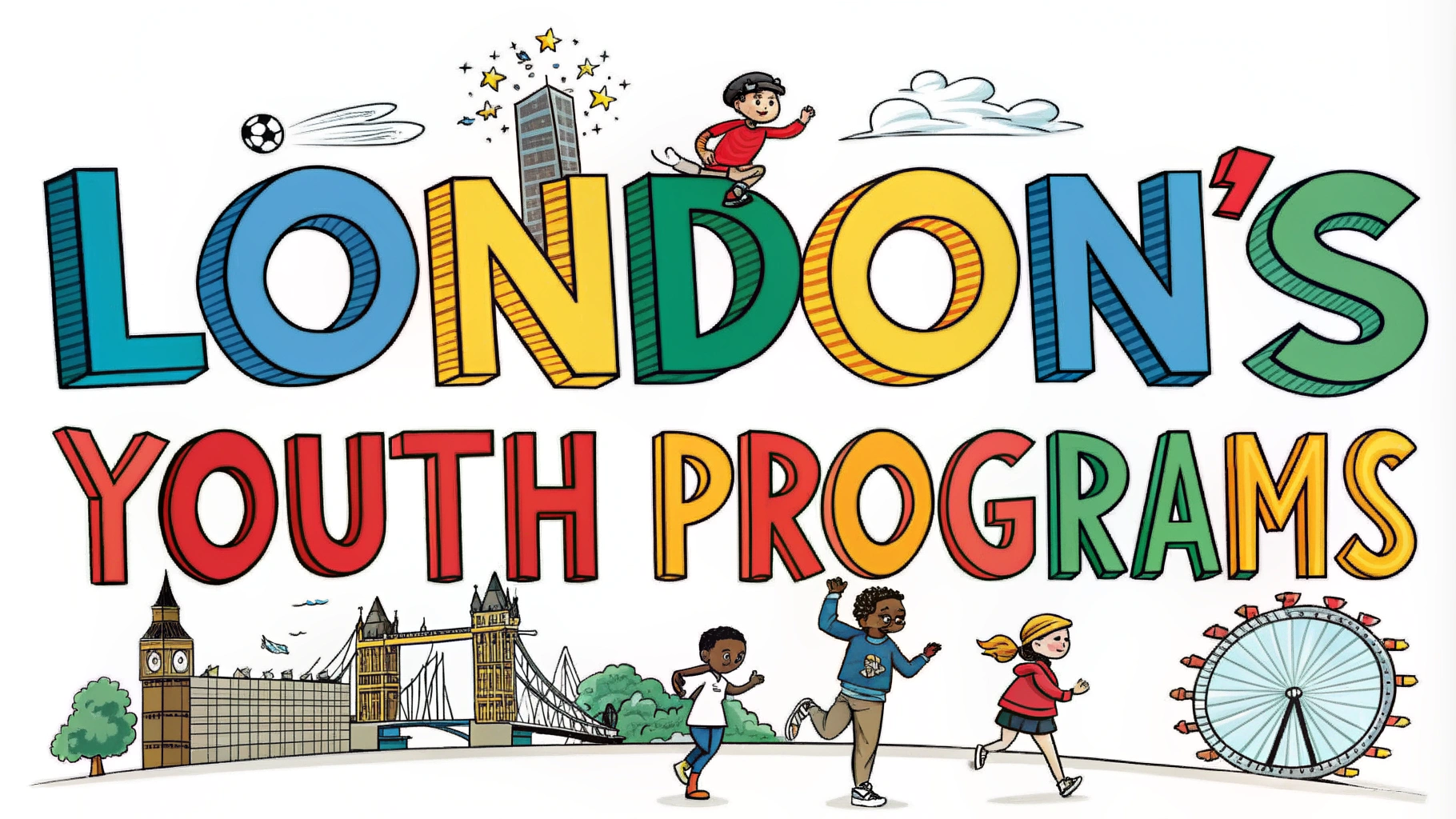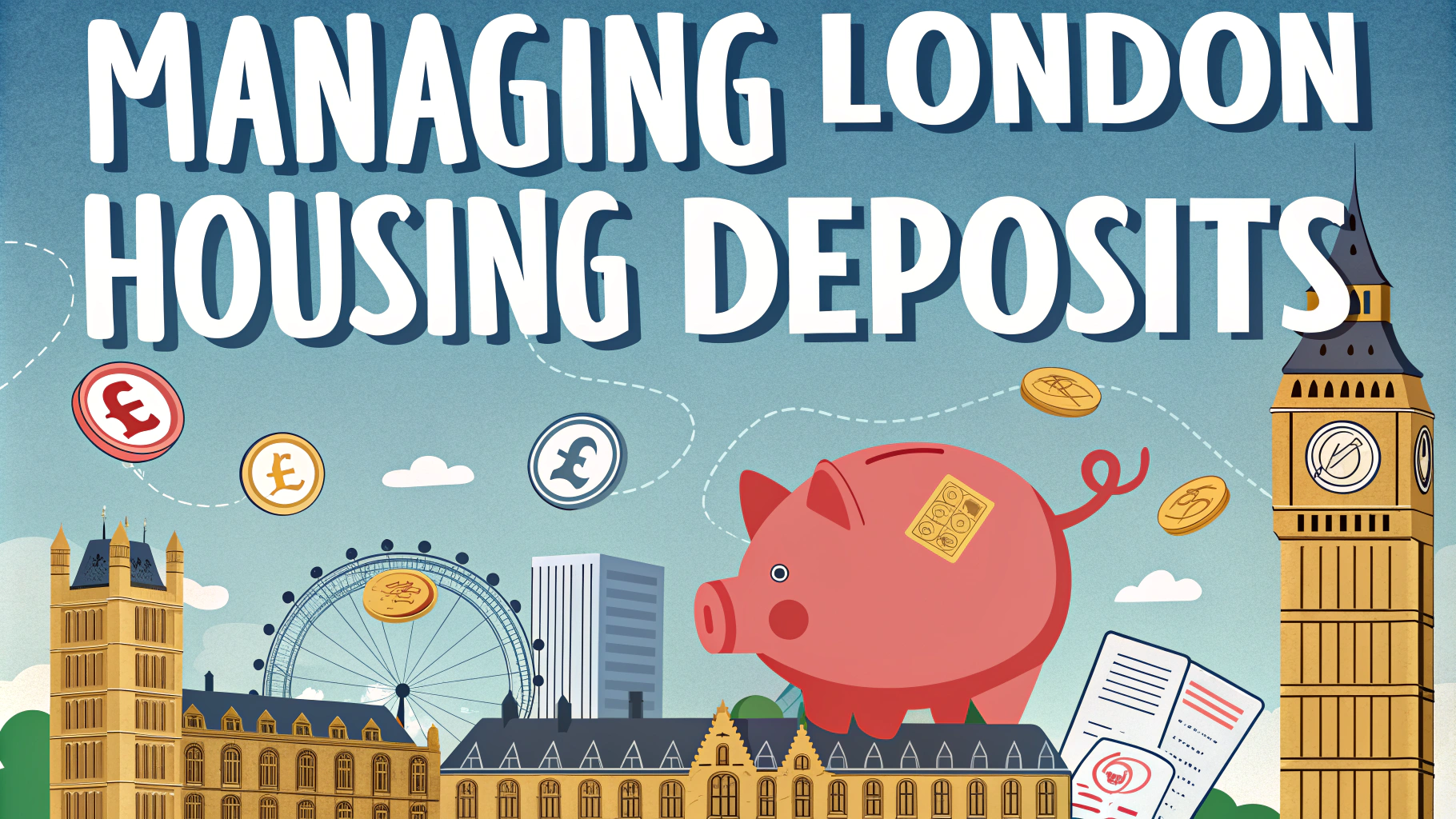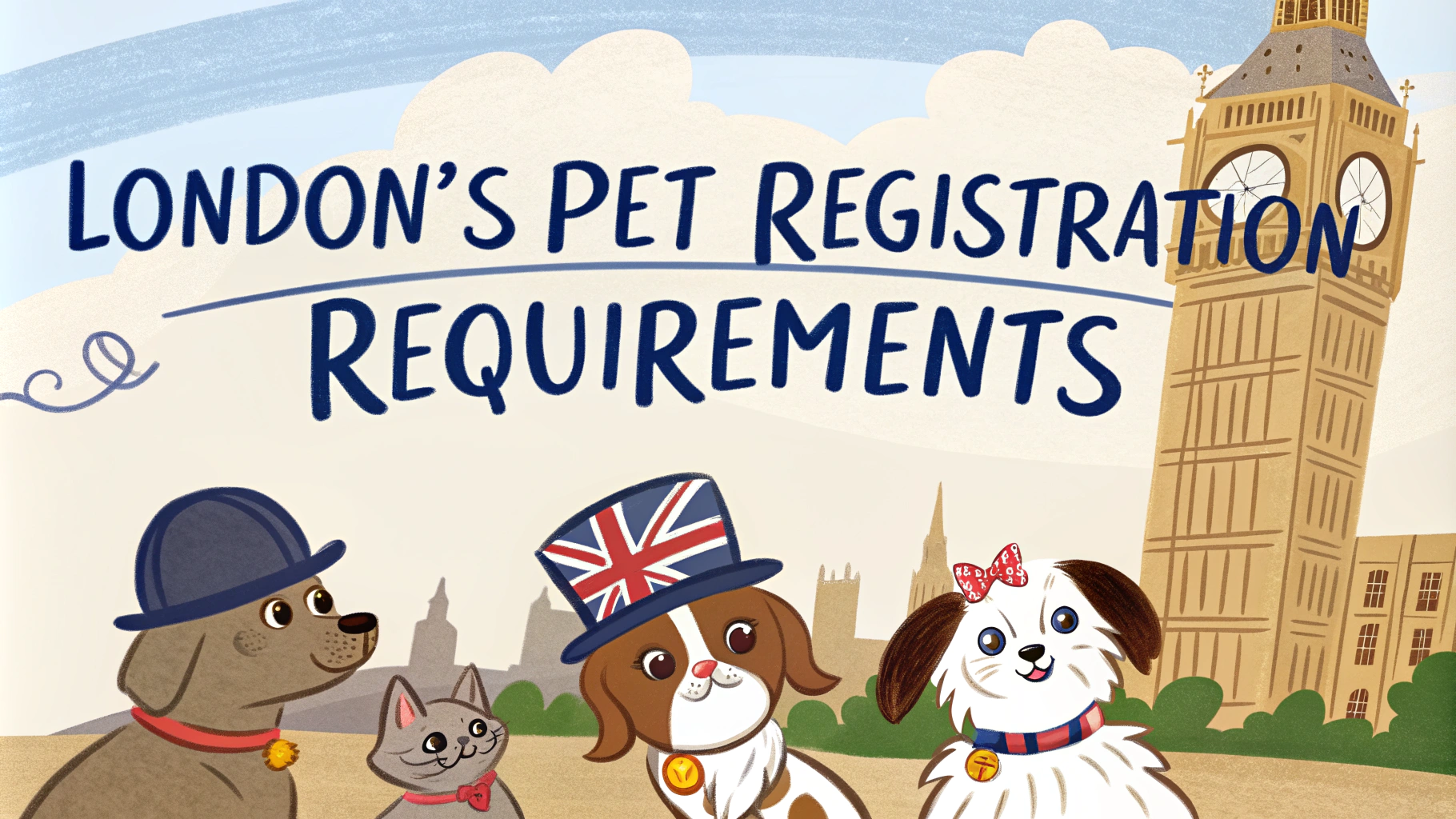London’s private schools offer world-class education opportunities for families relocating to the city, combining academic excellence with rich traditions and modern facilities.
Making informed decisions about private education requires understanding the application processes, costs, and unique characteristics of London’s independent schools.
This guide breaks down everything parents need to know about private schooling options in London, from admission requirements to financial planning.
Key Facts About London Private Schools
- Average annual fees: £15,000 – £45,000
- Application deadlines: 1-2 years before entry
- Main entry points: 4+ (Reception), 7+, 11+, 13+, and 16+
- Registration fees: £100-£300 (non-refundable)
- Deposits: Usually one term’s fees
Application Process Timeline
| Time Before Entry | Action Required |
|---|---|
| 24-18 months | School research and visits |
| 18-12 months | Submit registration forms |
| 12-9 months | Entrance assessments |
| 9-6 months | Offer acceptance and deposit payment |
Top London Private Schools
- Westminster School – £43,272/year (13-18 years)
- St Paul’s School – £41,829/year (7-18 years)
- King’s College School – £40,365/year (7-18 years)
- City of London School – £39,990/year (10-18 years)
- North London Collegiate School – £37,700/year (4-18 years)
Required Documentation
- Previous school reports
- Passport-size photographs
- Birth certificate
- Passport copies
- Proof of address
- Reference from current school
Financial Planning Tips
Consider these additional costs beyond tuition:
- Uniform: £500-£1,000 per year
- Extra-curricular activities: £500-£2,000 per year
- School trips: £500-£3,000 per year
- Lunch fees: £800-£1,200 per year
- Transport: £500-£2,000 per year
Scholarship and Bursary Options
Many London private schools offer financial assistance through:
- Academic scholarships (merit-based)
- Music scholarships
- Sports scholarships
- Means-tested bursaries (up to 100% of fees)
- Sibling discounts
Entry Assessment Types
- 4+ Entry: Informal assessment through play
- 7+ Entry: English, Mathematics, and reasoning tests
- 11+ Entry: English, Mathematics, Verbal and Non-verbal reasoning
- 13+ Entry: Common Entrance examination or school’s own tests
- 16+ Entry: GCSE results and subject-specific tests
Next Steps for Parents
- Create a shortlist of preferred schools
- Contact admissions offices for open day dates
- Register for entrance assessments
- Prepare required documentation
- Plan finances and explore funding options
For specific admissions information, contact the Independent Schools Council (ISC) at +44 (0)20 7766 7070 or visit their website at www.isc.co.uk.
School Selection Criteria
When choosing a London private school, consider these key factors:
- Location and accessibility
- Academic performance and university placement rates
- Curriculum options (IB, A-Levels, GCSE)
- Extra-curricular activities and facilities
- School ethos and values
- Class sizes and teaching approach
International Student Support
Many London private schools offer specialized support for international students:
- English as an Additional Language (EAL) programs
- Cultural integration support
- University application guidance
- Dedicated international student coordinators
- Host family arrangements
Visa Requirements
- Student visa sponsorship
- Guardian requirements
- Health insurance documentation
- Proof of financial capability
Academic Support Services
- Learning support departments
- One-to-one tutoring
- Study skills workshops
- Career counseling
- University preparation programs
Securing Your Child’s Educational Future
Success in securing a place at a London private school requires careful planning, thorough preparation, and attention to detail. Start the process early, maintain open communication with schools, and ensure all documentation is complete and submitted on time.
- Keep detailed records of all applications
- Attend all scheduled interviews and assessments
- Maintain regular contact with admissions offices
- Research backup school options
- Consider hiring an educational consultant for guidance
Contact individual schools directly for the most up-to-date information on fees, requirements, and available places. Remember that early registration significantly increases the chances of securing a place at your preferred institution.
FAQs
- What is the average cost of private schools in London?
Private day schools in London typically cost between £15,000 to £25,000 per year, while boarding schools can range from £35,000 to £50,000 annually. - When should I start the application process for London private schools?
Most schools require applications 12-18 months before the intended start date, with registration deadlines typically falling in the autumn of the year before entry. - What are the most competitive entry points for London private schools?
The most competitive entry points are at 4+ (Reception), 7+ (Year 3), 11+ (Year 7), and 13+ (Year 9), with some schools having acceptance rates below 10%. - Do London private schools require entrance exams?
Yes, most London private schools require entrance examinations. Common assessments include English, Mathematics, and reasoning tests, with specific requirements varying by school and entry point. - Are scholarships available at London private schools?
Yes, many schools offer academic, music, sports, and arts scholarships, typically covering 10-50% of fees. Means-tested bursaries are also available at most schools. - What documents are needed for private school applications in London?
Required documents typically include previous school reports, passport copy, proof of address, birth certificate, and registration fee payment. International students may need additional visa documentation. - How far in advance should I register for school visits and open days?
Popular London private schools fill their open day slots months in advance. It’s advisable to register 3-6 months before your preferred visit date. - What is the difference between prep and senior schools in London?
Prep schools typically cater to children aged 4-11 or 4-13, while senior schools cover ages 11-18 or 13-18. Prep schools often prepare students for specific senior school entrance exams. - Do London private schools accept international students?
Yes, most London private schools accept international students, but they may have specific English language requirements and limited spots for international applicants. - Are deposits refundable if we don’t accept a place?
Generally, registration fees are non-refundable. Acceptance deposits are usually only refundable with sufficient notice (often one term) before the start date.
